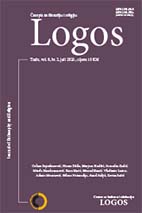ŽANROVSKO ODREĐENJE IBN ṬUFAYLOVOG ḤAYY IBN YAQẒANA
IBN ṬUFAYL’S ḤAYY IBN YAQẒĀN: GENRE DEFINITION
Author(s): Samedin KadićSubject(s): Metaphysics, Ethics / Practical Philosophy, Middle-East Philosophy
Published by: Logos – Centar za kulturu I edukaciju
Keywords: Ibn Ṭufayl; Ḥayy ibn Yaqẓān; essay; allegory; ẓāhir; bāṭin;
Summary/Abstract: Written in an authentic narrative form in the 12th century, Ibn Ṭufayl’s work Ḥayy ibn Yaqẓān is one of the best introductions not only to the tradition of falsafa, but also to the general history of Muslim thought, as it significantly summarizes philosophical, mystical, religious, scientific, and political knowledge that was known in the Muslim world at the time. By evoking some of the most prominent names of Muslim thought (Al-Fārābī, Ibn Sīnā, Al-Gazālī, Ibn Bājja), the author declares himself as a member of falsafa, the tradition that was developed from the process of translating Greek philosophy. Although the title of the work is not original (previously used by Ibn Sīnā), the plot and the idea certainly are. It is a broad discourse according to which truth can be known by reason itself, without the necessary mediation of the authority of Revelation or any institutional instance. In addition to the relatively constant motives of falsafa (eternity of the world, happiness, the relationship of philosophy and religion, religion and faith, mass and élite, etc.), the work anticipates some contemporary issues such as bioethics, autodidacticism, individualism, return to nature, self-discovery, etc. In this research paper we intend to critically analyze some of the most important of the proposed topics as addressed by Ibn Ṭufayl.
Journal: Logos – časopis za filozofiju i religiju
- Issue Year: 8/2020
- Issue No: 2
- Page Range: 93-113
- Page Count: 21
- Language: Bosnian

